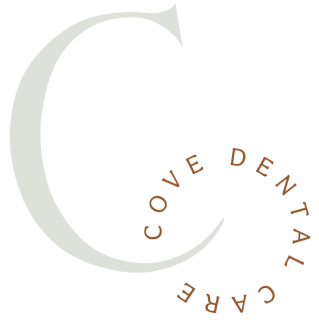Greer:

Tooth Extractions in Greenville, SC
Patients may require tooth extraction to remove severely infected, overcrowded, damaged, or impacted teeth. Removing these teeth actually relieves pain and improves the health and function of the teeth and gums. As a preventative dental care procedure, tooth extractions will stop the spread of infection or damage to the whole dental structure and surrounding teeth. Dr. Adam Carraway provides tooth extraction in Greenville, SC. Some patients may worry that dental extractions cause excessive pain during and after the procedure. However, Dr. Carraway makes sure that his patients feel as comfortable as possible during treatment.
A tooth extraction is a procedure used to remove a tooth from its socket. This dental procedure can be performed by a qualified and experienced surgeon, periodontist, or general dentist.
When Should I Consider a Tooth Extraction?
We consider tooth extractions as the last option when it comes to dental health solutions. Your local dentist will help you understand why you need to have your tooth pulled and what you should expect. There are two sets of teeth; the primary teeth, which are the first set of teeth that fall off as a child grows, and the permanent teeth, which grow in place of the primary teeth.
Though permanent teeth are meant to last a lifetime, several reasons may make extraction necessary. These can include: overcrowded teeth, irreparable damage, impacted teeth, periodontal disease or gum infections, or an accident.
Before recommending a tooth extraction, your dentist will fully examine your affected tooth, mouth, and gums to ensure that you are healthy enough for the procedure.
Tooth Extraction Process
There are two types of tooth extraction procedures that your dentist can recommend: simple and surgical extractions. Simple extractions are done under local anesthesia and are mainly performed on a visible tooth.
On the other hand, surgical extractions can be more involved. Your dentist may consider this option if they cannot easily access the tooth. This mainly occurs when the tooth is impacted or broken. In a surgical extraction, the dentist may perform an incision to raise the tissue covering the impacted tooth. They may also have to remove the tooth in several pieces.
When is a Tooth Extraction Necessary?
Can I Be Put to Sleep for My Extraction?
Yes, depending on the tooth to be extracted, your dentist may refer you to a specialist like an oral surgeon who can offer multiple sedation options. With dental sedation, you will not feel any pulling, discomfort, or pain. To ensure you are safe, the dental care team will closely monitor your vitals.
If you are at risk of complications, your oral surgeon can recommend having the procedure done in a setting to ensure that they will be ready to handle any emergency.
What Can I Expect Before and After the Procedure?
Depending on the type of extraction, your dentist can use local anesthesia to numb it. This will prevent sharp pain during the procedure. If you are using local anesthesia, you can expect to feel some pulling as the dentist tries to pull out the teeth.
After the extraction, you will experience some bleeding, and your dentist will place gauze on the sock to absorb the blood. They will also advise you on how to take care of the socket to reduce the risk of infection and speed up recovery.
What Is a Dry Socket and I can I Prevent It?
It is normal to develop a blood clot where the tooth was extracted. The clot protects and heals the nerve ending and underlying bones. The blood clot should stay intact until you are fully healed. However, there are times when the clot can get dislodged. This causes a dry socket which is very painful and uncomfortable. To prevent getting a dry socket, you should:
- Avoid using a straw
- Try not to smoke or use tobacco
- Maintain good oral hygiene
What Can I Eat After a Tooth Extraction?
During the first 24 hours after an extraction, it is vital that you only eat soft foods and some liquids. Some easy to chew foods that you can consider are:
- Eggs
- Applesauce
- Cottage Cheese
- Yogurt
- Mashed Potatoes
- Oatmeal
- Ice cream
The Importance of Tooth Extractions
Tooth extractions are a fundamental and sometimes necessary dental procedure that holds immense significance in maintaining oral health and overall well-being. While the idea of having a tooth removed might seem daunting, the importance of tooth extractions extends beyond the immediate discomfort, addressing various dental issues and preventing potential complications.
Firstly, tooth extractions are often employed to alleviate pain and discomfort caused by severely decayed or damaged teeth. These teeth can become a source of persistent pain, affecting eating, speaking, and overall quality of life. By removing the affected tooth, patients find relief from the agony and discomfort, allowing them to regain normal oral function and enjoy a better quality of life.
Secondly, tooth extractions play a crucial role in preventing the spread of infection. When a tooth is severely infected or abscessed, it can pose a significant risk to surrounding teeth and tissues. Extracting the infected tooth eliminates the source of infection, preventing its spread to adjacent teeth and reducing the risk of complications that could impact the entire oral cavity or even the systemic health of the individual.
Furthermore, tooth extractions are often necessary in cases of overcrowding or misalignment. Orthodontic treatments, such as braces, may require the removal of certain teeth to create sufficient space for proper alignment. Extracting teeth in these situations not only improves the effectiveness of orthodontic treatment but also contributes to a more harmonious and functional bite, reducing the likelihood of future dental problems.
In some instances, wisdom teeth extractions are recommended to prevent potential problems. Wisdom teeth, also known as third molars, often emerge with insufficient space in the jaw, leading to impaction, misalignment, and increased vulnerability to decay and gum disease. Extracting wisdom teeth before they cause complications helps avoid pain, infection, and the need for more extensive treatments down the line.
Lastly, tooth extractions can be a crucial step in preparing for restorative procedures such as dental implants or dentures. When a tooth is too damaged or compromised for effective restoration, extraction paves the way for more successful and durable replacement options. This strategic approach ensures that the patient can eventually regain full oral function, aesthetics, and confidence.
In conclusion, the importance of tooth extractions cannot be overstated. These procedures not only alleviate pain, prevent infections, and enhance overall oral health, but they also play a pivotal role in maintaining proper alignment, preparing for restorative treatments, and preventing future complications. While the prospect of a tooth extraction may initially cause apprehension, understanding the broader benefits of this procedure underscores its vital role in preserving and promoting oral health and well-being.
